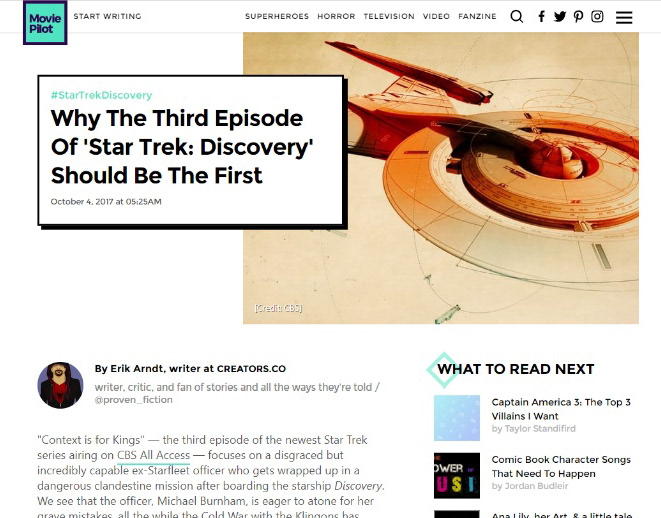Nori of Kensworth, who might have otherwise been a fairly ordinary 11-year-old girl, was not to be considered ugly, for even ugliness has its standards. She was fully human, to be sure – a monster neither in form nor in spirit, although those passing through Kensworth might have suspected otherwise. The daughter of a widowed blacksmith, Nori was born with a protruding jaw and pointed ears. Her singular graceful feature was her thick, rosy hair, which she always wore such as to cover those ears. Her jaw, however, not only remained uncovered, but was inconveniently located at eye-level with those adolescents who were deemed “tall” … at least until recently. Puberty hit early for Nori, and she was cursed with more than just the further increase in height. As her breasts grew, so did her feet and her nose. Her skin became hard, thick, and dry. Her papa began to worry.
The town blacksmith sought the expertise of not only the local physician, but of every reputable physician in the realm. Nori's height and broad shoulders she inherited from her father, and her ears from her mother, but nothing else could be explained. Papa eventually gave up, in part because the expenses incurred had all but depleted his moneybag, and in part because he determined that knowing the cause of Nori's symptoms should have no great effect on him. His daughter was his daughter, and as long as she was healthy, he cared not how she looked.
Papa was both fierce and gentle in his temper, in his work, and in his love for Nori. After Nori's mother died, Papa moved his house and his heart away from the rest of the villagers, but Nori he loved with a passion. He knew not how to be a good father, but that never hampered his attempt. He broke fast with Nori every morning and sang her to sleep every night. He had taught her to read, to cook, and to add; among the lessons he did not teach her was one of good hygiene, since a blacksmith had no need to consider such a thing.
Nori knew enough to bathe, but her teeth were yellow, her breath repugnant, and her fingernails long. These attributes were added to the list – to which belonged her stature, jaw, and other physical oddities – of hideous features all of Kensworth had the displeasure of witnessing. The other children felt it was their obligation to mock young Nori. In addition to ridiculing various features, the children called her “that creature”, as well as a beast or an ogre.
As the harassment increased, so did the amount of food Nori consumed. She found much comfort in food, and it certainly showed. But even the most appetizing meals could not drown out the taunts that occupied Nori's dreams. One day, a few moon-cycles ago, some of the children played a horrible, horrible prank upon Nori. The prank was far too horrible to be retold, but by the end, all of Nori's hair had been shaved. Having lost the one beautiful part of her self and having experienced the worst torment yet, Nori locked herself and her food away in her papa's house. When she emerged a week later with a large belly, the town of Kensworth saw her bald head and, for the first time, her pointed ears.
It was then that she received the label troll, and it remained the favorite of all Nori's labels, not only among the children, but among several of the adults as well.
All this would have been too much for Nori to bear, as it would have be for anyone, had it not been for her father's overwhelming love. She was not miserable too often, but she certainly was happy even less often. She smiled precisely twice each day: once when she was served dinner, and once when her father came home at night.
Nori had one friend and one friend only. His name was Garth, and he was the youngest son of Sampson and Mira. Sampson and Mira owned Kensworth's inn, which was located on the edge of town. When they saw how fond Garth was of young Nori, they began to treat her as they would a niece. They permitted Garth and Nori to stay inside or around the inn as much as they pleased, so long as they did not disturb the guests. They even gave Nori dinner almost every evening after Papa had lost so much of his money on the physicians and was now called upon to work long past sundown. Nori felt as if the inn was her second home, and it was there that Nori first encountered Agatha.
* * * * *
It began as a slow and gloomy evening at the inn, not unlike the evenings prior. Nori and young Garth had been catching frogs while Sampson finished preparing supper. Whether Nori understood animals well, or whether she was accustomed to people running from her, Nori had a knack for anticipating when and where the frogs would jump and thus had more frogs in her bucket than Garth had. Whenever she gained too many, she would goad a couple frogs to jump into Garth's bucket, and Garth would pretend not to notice. At the last such instance, which occurred just as the two children were returning to the inn but before the counting of the creatures, four frogs and one toad took their chance of escape and Nori clumsily lost control of her bucket. In his eagerness to help Nori, Garth leaped after the liberated frogs and, in doing so, dropped his own bucket.
Fenlock Creek ran less than thirty grown-up-sized steps away from the back of the inn, which made for lovely scenery. It also came in handy when fetching water for the wash. It was not so convenient, however, as the starting ground for a ribbitting parade of amphibians. With the children behind them executing a fair amount of leaping of their own, the score of frogs (and one toad) felt it best to move away from the creek and toward the inn's open door, courtesy of Sampson's ill-timed dinner announcement. The frogs at his feet gave Sampson a start, and he hastily shut the door, permitting only three of the frogs to enter the inn's kitchen. While succeeding in keeping most of the frogs out of his building, he also blocked entry for poor Garth and Nori. As the innkeeper successfully cornered one of the frogs, the two children darted around to the front of the inn with hopes of flanking the renegade animals.
Moments later, the sound of frightened frogs called the attention of Mira – as well as every visitor in the common room – to the kitchen door just before Sampson burst through it. At the same time, Garth stumbled through the main entrance, with Nori in tow, and bee-lined toward his father. Now, Sampson was quite a tall man, almost as large as Nori's papa, so to see him and his son leaping up and down across the common room while swiping at the floor began to upset some of the inn's patrons, to say the least. By the time Sampson caught his second frog, two women had fainted, four children had started screaming, seven men were yelling at the innkeeper, and thirteen people had retreated to the upstairs. With only one remaining frog on the loose, Mira attempted to calm down the guests while Garth started hopping in a new direction.
It was Nori who found the fugitive vaulting onto a table in the corner of the room where two men and one young girl sat, each clothed in very fine garments. Nori raced to grab the frog before it called further attention upon itself, and the frog was determined to take a warm bath. Just as the amphibian made its plunge toward the nearest bowl, Nori heroically snatched it out of the air! Her moment of glory was short-lived, however, as her over-eagerness to capture the runaway lent itself to great momentum of Nori's body, which led to her falling toward the corner table even after the frog was in hand, which led to the thrusting of Nori's elbows onto one edge of the very bowl that the frog had made its target, which led to the opposite edge of the bowl being catapulted into the air, which unfortunately led to the broth of the rabbit-and-herb stew – along with a look of disdain – covering the face of the man behind the bowl.
The face belonged to none other than the Duke of Hatherton, who was known for his love of jewelry, but certainly not for his tolerance. The Duke had decided to visit Kensworth to expand his jewelry collection, and his decision to do so was a great honor for the village. The town jeweler had agreed to meet the Duke at the inn to present his finest work. The jeweler, along with his daughter of four and a case of glamorous accessories, had claimed a table in the corner of the common room and had ordered dinner for all three persons. The Duke's carriage arrived shortly thereafter, and his Grace took a seat at the table of the jeweler and his daughter approximately two minutes before the commotion had begun. What followed was this: a cordial introduction; the unveiling of gems set in bracelets, rings, and necklaces; a glimmer in the young girl's eyes; a brighter glimmer in the Duke's eyes; the sampling of rings upon the Duke's finger; the distraction of strange noises emerging from the kitchen; the interruption of the bumbling innkeeper; the Duke's outrage; the jeweler's assurance that all will be rectified; stew upon the Duke's face.
After recovering from his shock, the Duke of Hatherton wiped down his face and glared at Nori. “What is such a vile creature doing at this inn? And particularly on the day that I chose to grace this filthy town with my presence?”
“I'm terribly sorry, sir.” Not realizing the position of the man to whom she spoke nor the respect due him, Nori ran to the kitchen, out the door, and to the other side of Fenlock Creek before releasing the frog.
In her absence, the Duke muttered, “Splendid: one beast takes out another.” Now, when most persons mutter, they do so under their breath so as to keep others from hearing their utterances; contrarily, when a duke mutters, he does so above the bustle of people returning to their seats and above the apologies of jewelers and innkeepers – a duke mutters so that all may know the duke has muttered.
Sampson was known to be a proud man, so for him to offer an apology on behalf of his inn meant a great deal. An insult to his son's friend, though, was something he simply would not tolerate, no matter who had delivered it. “Your Grace, the young girl who kept that frog from jumping into your stew or your lap or your royal self-importance is the gentlest human I have ever encountered, and I can tell you as an innkeeper I have encountered a good many...”
“Oh, she is human, then. And to think I was almost credited for discovering a new species. Now, about that comment of my self-importance...”
“You are not welcome in this town, you peacock!”
“Yeah!”
Mira grabbed her son and placed one hand over his mouth. “Quiet, Garth.”
“Yes, I know,” the Duke replied, standing. “The frogs told me so.”
It was at this point that the jeweler inserted himself into the conversation: “No, no! We certainly welcome and revere you! Your mere presence is a blessing to us all! Allow us to make accommodations...”
The Duke ignored the man next to him and made his way toward the door. “You can expect to hear from me. Oh, and if I were you I would start packing your bags and looking for another line of work. Do not expect this inn to receive any more visitors save for thieves and scoundrels.”
Outside, Nori rounded the corner of the inn with stew on her elbow and mud on her boots just in time to see a squire aid the Duke into his carriage before the driver cracked his whip. As she entered into the common room, Mira threw her arms around Nori and held the girl's cheek against her bosom (which meant that Nori had to bend down, as she was considerably taller than Mira).
“Poor dear. Are you alright?”
“Well, I'm a little wet.”
Mira smiled, relieved that the Duke's insults had not disturbed Nori. “That's my girl.”
“Oh look, I've got water all over your floor. Let me clean it up.”
“No no, You go clean yourself up. Garth will tend to this mess. I will prepare for you a nice warm bowl of rabbit-and-herb stew.” It was then time for the first of Nori's daily smiles.
After Nori had cleaned herself up and returned to the common room for her dinner, she watched as the jeweler's daughter placed the jewelry back in its carrying box. The jewelry had been scattered during the commotion, and now the little girl slid under tables and chairs to grab shimmering objects and gently place them back into the box. Meanwhile, her father bickered with the innkeeper.
The sixth-to-last item that the small child found was a ring lying next to Nori's oversized left boot. At seeing the blacksmith's daughter, the little girl stopped and stared. But this stare, Nori noted, was not one of terror, but almost one of wonder. At that same moment when other children would have taken a step back, the jeweler's daughter took a step forward. Then another. Then the little girl bent down and retrieved the ring, stood up, and held the ring toward Nori with her palm facing downward. Hesitantly, Nori held out her hand beneath the girl's outstretched arm, and the girl dropped the ring into Nori's palm. With a gleam in her eyes, the jeweler's daughter skipped away to collect the remaining five items.
“Come now, Agatha,” said the jeweler, “we're leaving.”
Without a word, little Agatha placed the rest of the jewels into her father's box then followed him out the door.
Only after the jeweler and his daughter were out of sight did Nori look down at the ring in her grasp. Set in a thin, golden frame was a square emerald that would have matched her mother's eyes. The pattern along the side was an elaborate series of curls. Engraved on the inside was a word or phrase in some unfamiliar tongue. Nori placed the ring in her left pocket and finished her stew.
After saying her goodbyes to Garth, Mira, and Sampson, Nori made her way to the blacksmith's house on the outskirts of the village where she would await the return of her father and her second daily smile.
* * * * *
The following morning, Nori ate her breakfast and took her bath as was her routine, then set out into town, determined to return Agatha's ring. The gift was a kindly gesture, she could not deny, but surely the young girl did not recognize the ring's true value; such a commodity could not merely be handed over to another person, nevertheless a person who looked like a troll. It was only after she had explained her errand to Garth and excused herself from the usual play-time that Nori realized she knew not where the jeweler's shop was located, never having owned any jewelry herself.
Although Nori had lived in the small town of Kensworth all her life, she felt like a stranger among its buildings, and not solely because she was treated as an outcast. Having spent most of her time between her house and the inn, Nori would only venture into town to run the occasional errand for Papa or Mira, and even then would make the trip as quick and direct as possible.
Now, Nori wandered the streets peering through the windows of shops scarcely familiar. On more than one occasion, she was chased away by a merchant who feared she might attempt theft, or at least that she might scare away customers. Other children would snicker and sneer as she passed, and one particular group followed her to place bets on which villagers would run from Nori, which would hide, and which would mock her. Thus far, it was nothing out of the ordinary for the blacksmith's daughter.
After reaching the far end of town without the slightest clue as to where to find the jeweler, the defeated Nori and her sneering companions began to venture back the very way she came, this time without examining each shop. After passing seventeen buildings, six buggies, two drunks, and one particularly smug pig, Nori heard soft, quick footsteps behind her. She turned expecting to see one of the trailing adolescents preparing to kick her or throw a bucket of mud on her (again), but instead saw the jeweler's daughter. Before anything could be said, the little girl threw herself onto Nori's right leg and ensnared it with her tiny arms.
“Oh, uh … Hi. It's Agatha, right?”
The little girl released her grip, looked up at Nori, and nodded.
“My name is Nori.”
Agatha grinned.
“Listen, can I, uh … Where are your parents?”
Agatha wrapped her left first around Nori's right index finger and started walking back toward the far edge of town. As Nori followed, she noticed that the brigade of children who had been tailing her now stood motionless with bewildered looks upon their faces.
The two girls came to a three-room stone house whose entrance stood twenty-three grown-up-sized steps away from the main road. Inside, the first room held a wooden table and four wooden chairs. The room to the left, Nori surmised, must have been the kitchen. Agatha led Nori straight to the back room, complete with two beds, a set of drawers, a wardrobe, and three bookshelves. Agatha went to the smallest bed and its adjacent shelves and started grabbing books, bracelets, dolls, buttons, and pictures and proceeded to hand them, each in turn, to Nori.
“Oh, that's lovely. Thank you. How nice. Where did you get this one? Oh, careful, there. Maybe we should leave these on the shelves. Yes, that one's nice, too.”
Suddenly, there came the short yet startling scream from behind Nori, followed by a thin crash. In the doorway stood a woman of motherly age, of elegant features, and of fine dress. At her feet was a puddle of tea and shards of what had previously been a tea cup.
“Oh, uh … Hi. Agatha was just, just showing me some of her favorite things.” By 'favorite things', Nori had meant 'everything', for hardly any object remained on the shelves by this time. Nori noticed that the woman's eyes were fixed on Nori's index finger, which was once again held captive by Agatha's grip.
“So she was. Agatha, honey, why don't you return all of this back where it belongs.” The woman's breath steadied, and her countenance softened. “I do apologize for the screaming, dear; I hardly expected to see anyone but Agatha in here. Can I get you some tea?”
Nori accepted and offered to clean up the mess on the floor, but the jeweler's wife would not have a guest cleaning up her own mess. Nori took a seat at the table in the first room while Agatha cleaned the bedroom. After lemongrass-and-chamomile tea was served, Nori explained that she came to return the emerald ring from the night before. Naturally, Agatha's mother was curious to know how it came unto Nori's possession, so Nori recounted the incident with the Duke and the frogs at the inn, which gave the jeweler's wife quite a laugh.
“I'll tell you what. Why don't you keep the ring? Agatha seems rather taken with you; she isn't very comfortable with many people, so to see her cling to you after just having met you is, well … it warms a mother's heart.”
“Are you sure? It looks quite expensive; Papa could never afford it. It doesn't fit on any of my fingers anyway.”
“So I see. Well, we'll just have to give you another item, won't we. Agatha thinks that everything is the most beautiful thing, the dear, so maybe I'll do the choosing this time. Consider it a gift; don't worry about the cost. One moment.” The jeweler's wife disappeared into the back room, then emerged a minute later with Agatha on her heels. “There, now. This will suit you quite splendidly, I believe.” The woman held out a shimmering silver chain with what looked like a waning moon in the middle. “We call it a 'silver smile', a new design of my husband's. Bend down for me, dear.” The lady draped the necklace over Nori's neck until the silver smile hung against her chest. As she stood up, the sunlight through the window struck the smile, exuding a brilliance that brightened the entire room. “Yes, that will do just fine.”
The story continues; this was just about 40%.








